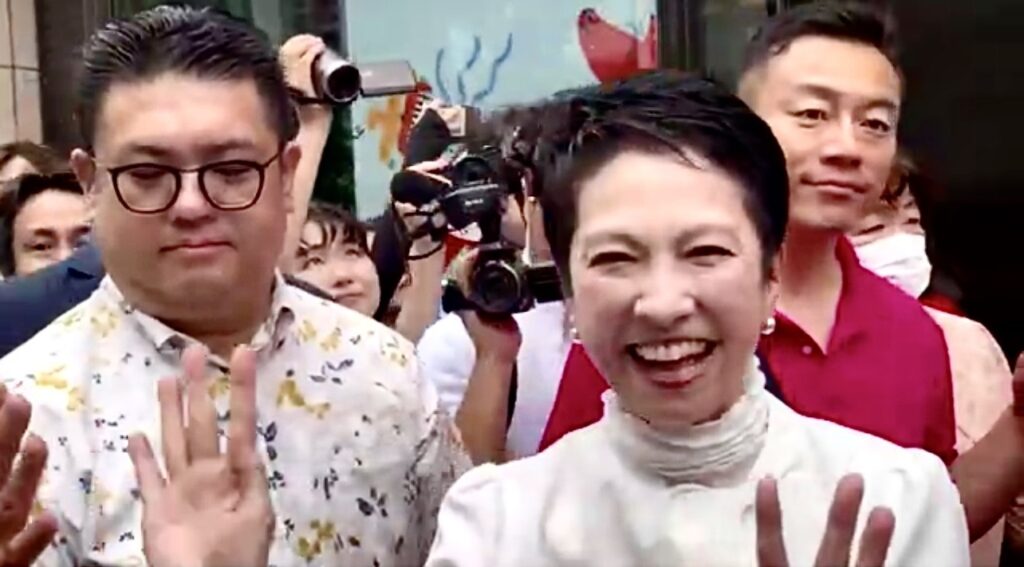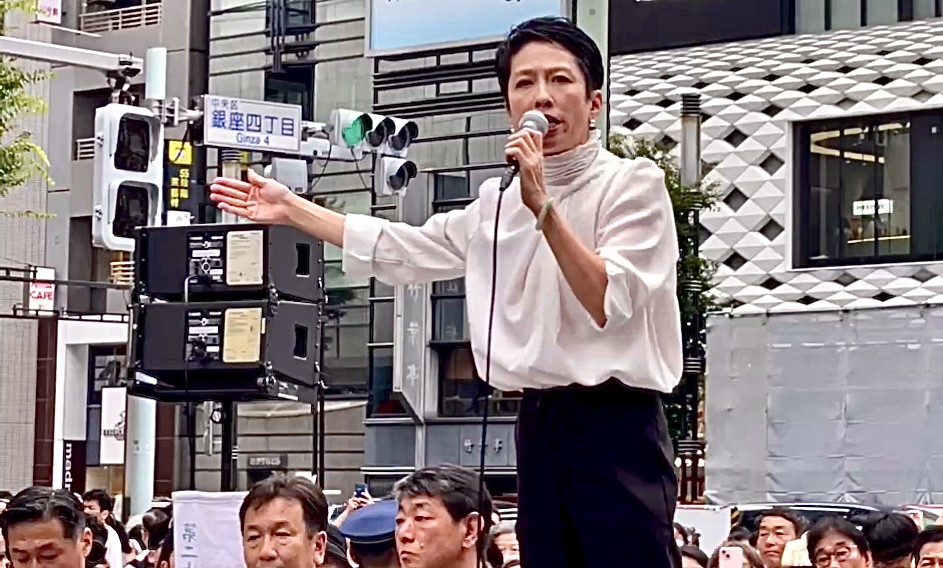



TOKYO: Tokyo governor hopeful Renho took a swipe at the national and Tokyo governments on Sunday by pointing out the difficulties young people face to establish relationships and get married.
Speaking in the upmarket Ginza shopping district as she campaigned for the July 7 Tokyo gubernatorial election, Renho, who goes by one name, said the way the government tries to promote marriage and having children was “out of date.”
“Times are diverse,” she said. “There are many ways to live, and this is a good thing. I want to be a governor who supports everyone’s way of life fairly in every choice and decision, not just those who get married.
“Until now, young people had little support, so what happened? People couldn’t get married because they couldn’t imagine their life even after three years. They had no choice but to give up.”
Renho said the government’s policies prevented people from having children. “My promise is to focus on these young people and increase their incomes,” she said. “They have no choice but to give up having children.” She also pointed out there are people who don’t want to get married and people who want to live alone.
She criticized the behavior of politicians and said she wanted to “clean up” the collusion among politicians, bureaucrats, and business.
“The burden on young people is too heavy,” she said. “Tokyo is Japan’s third richest city. However, the basic expenses, such as rent, electricity, food and transportation are the most expensive ones, so there is no money left.”
She said in terms of useable money after paying for high basic living expenditures, Tokyo ranked last out of Japan’s 47 prefectures. In addition to daily living costs, half of the younger generation owe school tuition fees averaging over 3 million yen.
Accompanying Renho was EDANO Yukio, the former leader of the main opposition party – the Democratic Party of Japan before it changed its name to the Constitutional Democratic Party – who decried the gap between the rich and poor.
“In Tokyo, developed places continue to develop, but it’s very different for those who live alone or those who are jobless,” he said. “We have to do something about that.”